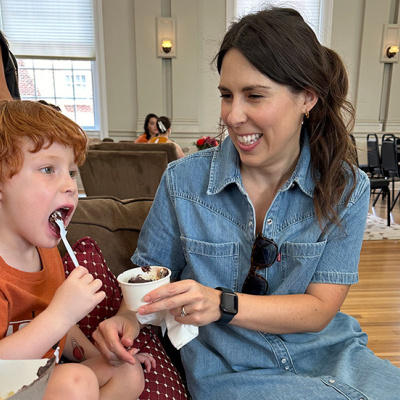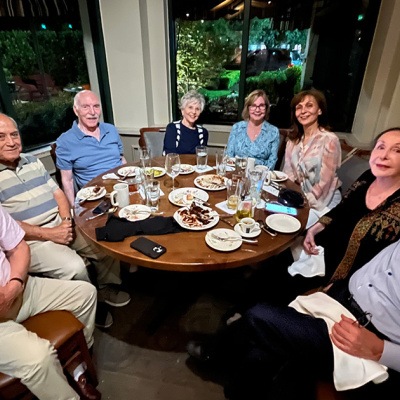A New Program Is Filling Dell Seton Medical Center’s Halls With a Joyful Sound
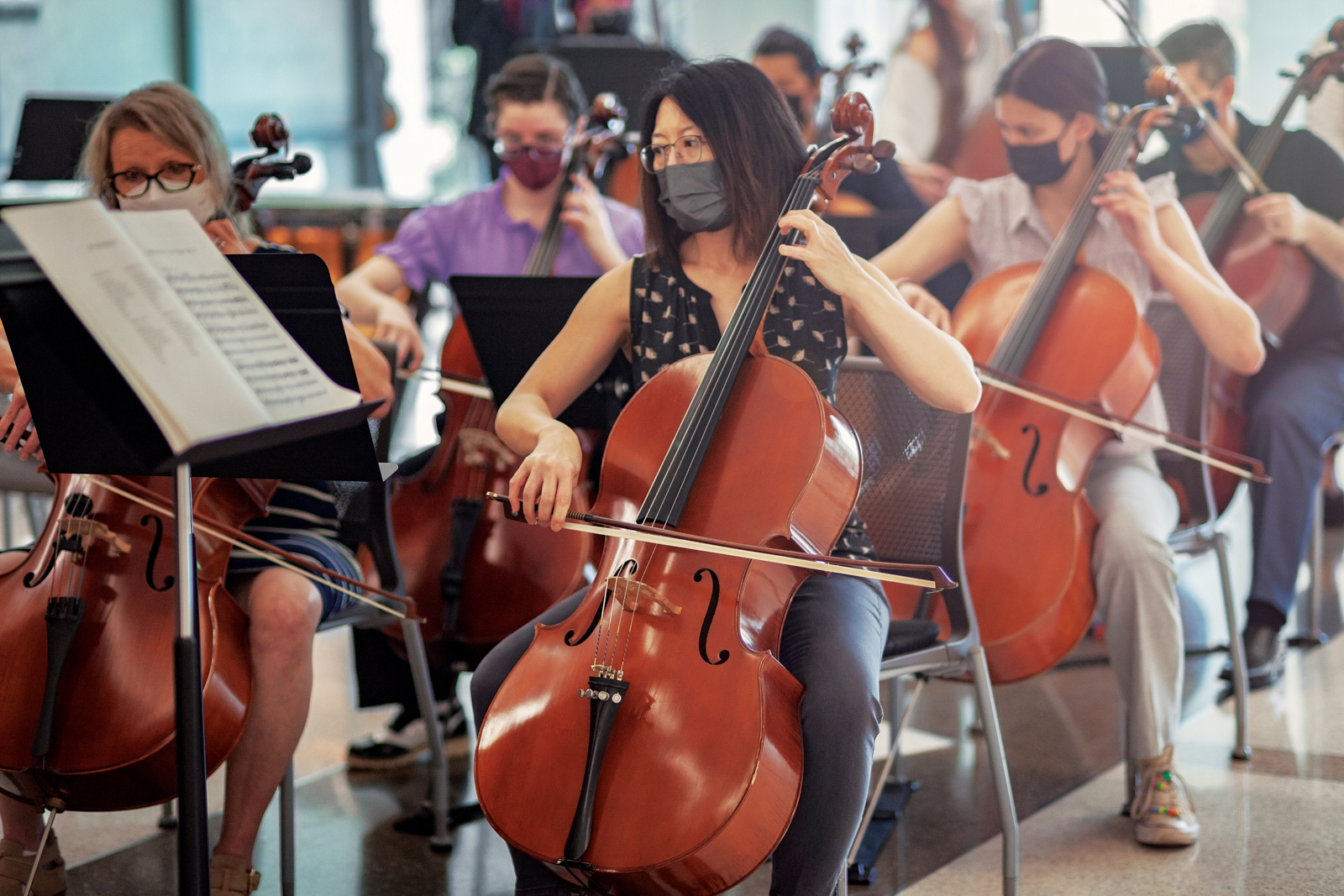
Even in Austin, the so-called live music capital of the world known for “keeping it weird,” a hospital is still one of the last places you’d expect to catch a show. Mark Bernat, Dell Medical School’s new director of music services, is hoping to change that.
His new music program at the school is bringing in guest musicians to the Dell Seton Medical Center and also resulted in the Red River Ensemble, a volunteer collective of musicians conducted by Bernat. It’s all designed to bring sweet sounds to patients, visitors, and doctors—or anyone who happens to be at the hospital—in times they might need it most.
This isn’t Bernat’s first time running a program like this—and it’s far from his first time performing in front of an audience with an ensemble. Bernat is a Juilliard-educated double bassist and a former member of the Israel Philharmonic, the Jerusalem Symphony, and the Seattle Symphony, and has also taught at Oberlin Conservatory, UT Austin, and Emory University. And previously, Bernat started a similar program at the University of Iowa, where his wife, Amy Lee, now a neuroscience professor at UT, was working. The hospital in Iowa had a program called Project Art, which brought in artwork to display around the facility. Bernat came on to direct the music side of Project Art, with the idea of bringing in musicians to perform at the hospital. Immediately he knew he wanted to bring in the kind of musicians who would draw audiences to places like Carnegie Hall.
Over 12 years, he invited guest performers to play in the atrium at the University of Iowa Hospitals & Clinics and formed a volunteer orchestra of nearly 30 people, including doctors who worked at the hospital. After his wife was recruited to UT, he decided to try and bring his work with them to Austin, a place he already knew appreciated quality live music. He had seen in Iowa how much patients and visitors enjoyed those moments of respite listening to a performer in times of stress or sadness. Why wouldn’t it work here?
“I pitched my [program] to the administration here. Luckily, the people that are running Dell thought it was to everybody’s benefit to try to have this program here,” Bernat says, “And I couldn’t agree with them more, of course.”
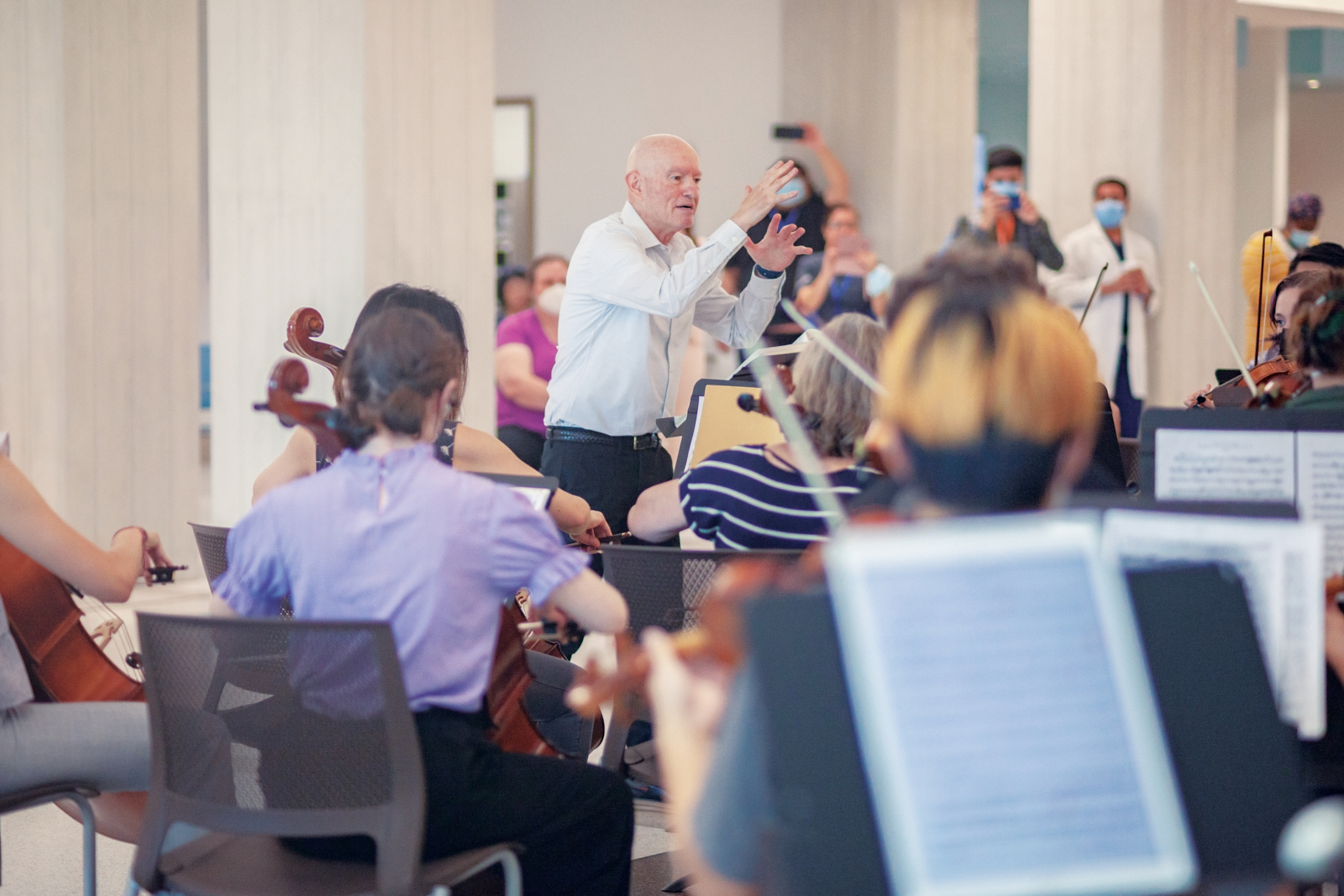
There are clear benefits to having music in a place as stressful and anxiety-inducing as a hospital. Listening to music has been proven to lower blood pressure; improve memory, sleep, and mood; and reduce stress and anxiety. Bernat has already seen its effects firsthand. Recently, when the Dell Seton Medical Center hosted a performance from pianist Anton Nel, a woman who had a family member undergoing a procedure in the hospital attended the concert. She approached Nel afterward, sobbing,
“She was so grateful to have those 45 minutes of beautiful music,” Bernat says. “Music is pretty powerful in that way.”
Visitors and patients at Dell Seton Medical Center aren’t the only ones benefiting from Bernat’s program. Members of the Red River Ensemble, which includes at least one Dell doctor, are also reaping the rewards.
“The orchestra has a dual function. Not only are we performing for people who are under that stress or their family members, but the people performing themselves, many of them have high-stress jobs during the day,” Bernat says. “For them, to play music is an outlet, a relief from that.”
The Red River Ensemble itself is still developing—it can be hard to wrangle dozens of volunteer musicians for rehearsals—but it had its first official showcase in the atrium on May 11, performing a 45-minute concert featuring Beethoven’s Leonore Overture #3 and Symphony #1. After weeks of rehearsal, Bernat says it was very moving and rewarding to finally get to conduct his orchestra of volunteers—and that there were “lots of cheers and tears” in the audience.
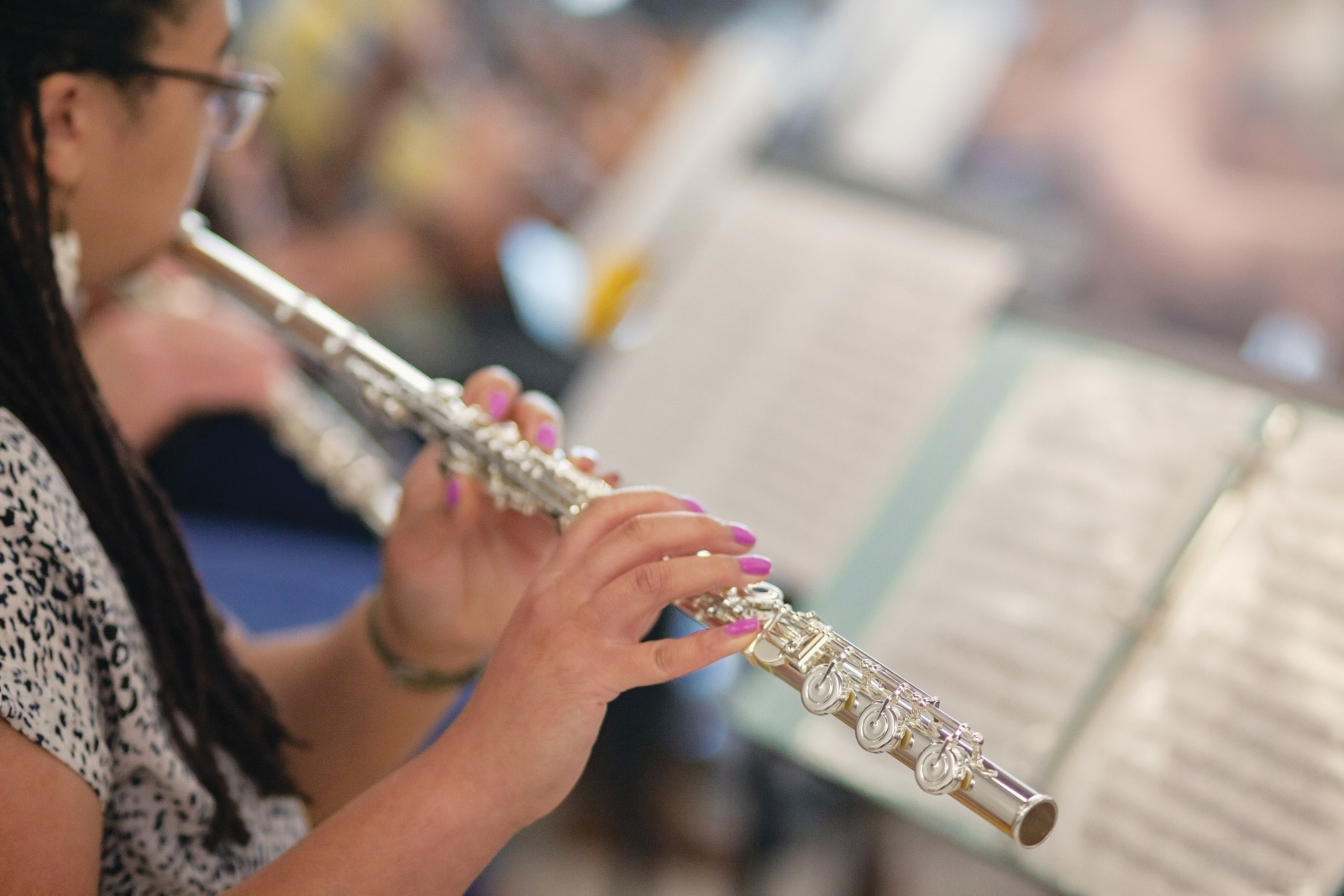
As the program continues to grow, Bernat is thrilled he and his fellow musicians can offer some entertainment and maybe even comfort in times of stress, when words might fail.
“As a musician, you get to reproduce something that’s very special to people out there listening, and it’s a great benefit and a gift it to be able to connect with someone without having to speak,” Bernat says. “I can go anywhere in the world and play music and they’ll understand me if I’m doing it right.”
CREDITS: Summer Miles

